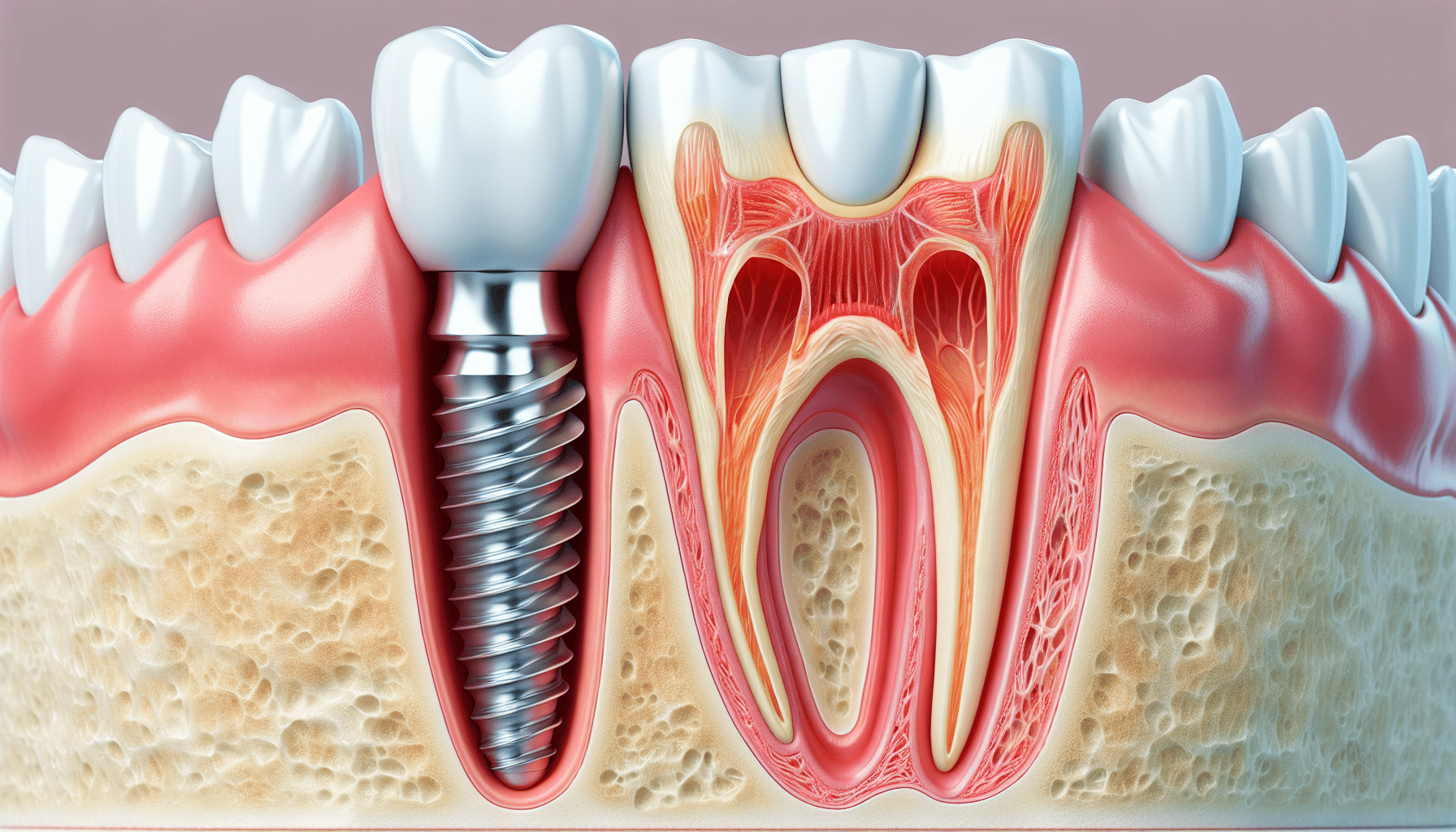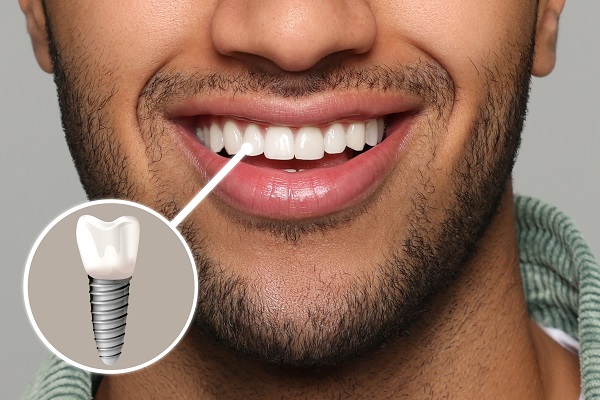Mono Implants Galena OH Step-by-Step Guide to Dental Implant Procedures
Mono Implants Galena OH Step-by-Step Guide to Dental Implant Procedures
Blog Article
Family Dental Clinic Pataskala OH Are Dental Implants Permanent? What You Should Know
Dental implants have emerged as a preferred alternative for individuals looking for a long-term answer to tooth loss. One important aspect of understanding dental implants involves their impact on adjacent teeth. This is particularly essential for guaranteeing the health and longevity of the entire dental structure.
When a dental implant is positioned, it mimics the function of a natural tooth root. By doing so, it helps keep the integrity of the encompassing bone structure. Natural teeth rely on a balanced, interconnected system for support, and dental implants can contribute positively to that dynamic. The stability supplied by the implant allows for better distribution of chunk forces, which may prevent undue stress on adjacent teeth.
Dental Care Condit OH Dental Implant Procedure: What You Need to Know Before Surgery
In circumstances where a tooth is missing, the neighboring teeth might shift into the vacant space. This shifting can lead to misalignment and numerous other issues. By placing a dental implant, the danger of this shifting is lowered, because the implant acts as a placeholder that preserves the natural alignment of surrounding teeth. This preventive effect is essential for long-term oral health and performance.
Another important consideration is bone loss. When a tooth is lost, the jawbone in the area can begin to deteriorate due to a lack of stimulation. Dental implants help prevent this bone loss by providing the necessary stimulation to the jawbone, much like a natural tooth root would. This preservation of bone not solely supports the implant itself but in addition contributes to the stability of adjacent teeth.
The sort of fabric used in dental implants, sometimes titanium, has a singular property of osseointegration, which means it fuses with the bone over time. This integration offers a sturdy basis for the artificial tooth while making certain that the implant doesn’t negatively affect surrounding buildings. As the implant integrates, it creates an surroundings that contributes positively to the health of the adjacent teeth.

Regular dental check-ups play an important position in monitoring the influence of dental implants on adjacent teeth. Professional assessments might help determine any points which will come up, ensuring immediate remedy and sustaining the health of the entire dental arch. These evaluations would possibly include X-rays to examine for bone density and the overall condition of the implant and surrounding teeth.
Mono Dental Implants Columbus OH Understanding Dental Implants: A Comprehensive Guide
Oral hygiene practices are vital for individuals with dental implants. Proper brushing and flossing habits not solely contribute to the longevity of the implant but additionally ensure that adjacent teeth stay wholesome. Food particles and plaque that accumulate across the implant may cause problems, including peri-implantitis, an inflammatory condition that may have an result on surrounding teeth and tissues.
The positioning of dental implants can affect the health of adjacent teeth. If an implant is placed at an angle or not correctly aligned, it could lead to elevated strain on neighboring teeth. This misalignment could trigger put on and tear on adjacent enamel, potentially resulting in cavities or different dental issues. Therefore, the ability and experience of the dentist performing the implant procedure are paramount in reaching a successful outcome.
In some instances, extra procedures may be needed to prepare the surrounding space for an implant. Bone grafting or sinus lifts might help create a better setting for the implant. While these procedures are geared toward enhancing the location for the implant, they also serve to guard the health of adjacent teeth by making a more steady foundation.
Johnstown Dental New Albany OH Dental Implant Types: Choosing the Right Solution

As dental technology evolves, developments in implant methods result in higher outcomes. Improved imaging techniques and computer-aided design permit for more exact placements that reduce risk to adjacent teeth. With these developments, the probability of issues that would come up from improperly placed implants diminishes considerably.
Post-operative care also performs a crucial function in making certain that adjacent teeth stay unaffected. Patients must adhere to the dentist's directions relating to food plan, oral hygiene, and follow-up visits. Neglecting these tips may lead to issues that impact not solely the implant but also the neighboring teeth.
Mono Dental Implants Granville OH Dental Implant Types: Choosing the Right Solution
In conclusion, dental implants, when positioned appropriately and cared for correctly, have the potential to reinforce the health of adjacent teeth somewhat than detract from it. They preserve alignment, stimulate bone progress, and supply a safe basis that supports the whole dental structure. Understanding how dental implants affect adjacent teeth emphasizes their importance as a long-term tooth replacement answer. With continuous developments in know-how and techniques, the mixing of dental implants into restorative dentistry is turning into more and more profitable, ensuring healthy and functional smiles for years to come.

- Dental implants prevent adjacent teeth from shifting into the gap created by a missing tooth, serving to to hold up proper alignment in the mouth.
- The rebuilding of the jawbone via an implant can stimulate surrounding teeth and maintain them wholesome by offering necessary bone density which may in any other case diminish.
- Adjacent teeth profit from the stabilization that dental implants present, reducing the risk of wear and tear and tear from misalignment throughout chewing.
- Implants can defend adjacent teeth by performing as a framework, which can distribute chew forces evenly throughout the dental arch as a substitute of inserting undue stress on neighboring teeth.
- When positioned correctly, dental implants minimize the risk of gum disease which may have an effect on adjacent teeth by sustaining a clear and wholesome gum line.
- The presence of an implant can facilitate an improved oral hygiene routine, because it eliminates the necessity for bridgework that might entice meals particles round adjacent teeth.
- Regular dental check-ups can reveal how nicely the implant integrates with surrounding constructions, guaranteeing ongoing health for adjacent teeth.
- Implants can prevent the natural strategy of bone resorption that happens after tooth loss, positively impacting the soundness and longevity of adjacent teeth.
- The use of dental implants would possibly cut back the need for extra invasive procedures sooner or later, offering a long-term resolution that maintains the structure of the whole dental arch.
- Successful integration of an implant into the dental arch enhances general oral perform, typically resulting in improved confidence and oral health for adjacent teeth.undefinedHow do dental implants affect adjacent teeth?
What impact do dental implants have on the alignment of adjacent teeth?
Dental implants generally prevent the shifting of adjacent teeth, helping to take care of proper alignment. This stability can cut back the chance of growing chew issues over time.
Can dental implants cause damage to close by teeth?
When positioned appropriately by a professional professional, dental implants should not harm adjacent teeth - Dental Clinic Centerburg OH. However, improper placement or inadequate planning could result in problems
Mono Implants Columbus OH What Are Dental Implants? Types, Benefits, and More
Do dental implants require any particular care concerning adjacent teeth?
Maintaining good oral hygiene is crucial. Surrounding teeth ought to be brushed and flossed frequently, and routine dental check-ups will help be sure that each the implants and adjacent teeth stay healthy.

Will dental implants impact the health of my surrounding teeth?
Dental implants can improve the health of surrounding teeth by distributing chew forces evenly, lowering put on and tear. Additionally, they can prevent bone loss in the jaw, which may affect adjacent teeth.
Dental Clinic Sunbury OH Dental Implant Surgery: Procedure, Recovery, and What to Expect
Are there any long-term results of dental implants on close by teeth?
Long-term, dental implants can help protect the health of adjacent teeth by stopping shifting and potential gum issues, ultimately contributing to higher oral health general. - Pediatric Dentist Pataskala OH
Can gum problems this arise round adjacent teeth after getting implants?
If proper dental care is uncared for, gum issues may develop round both the implants and adjacent teeth. Following post-operative care directions is essential to reduce these risks.
Dental Center Galena OH Dental Implants Cost Breakdown: What You Need to Know
How do dental implants examine to bridges when it comes to adjacent teeth?
Dental implants are usually beneficial as they don’t require alteration of adjacent teeth, not like bridges, which necessitate reshaping of nearby teeth for help. (Mono Dental Implants Pataskala OH)
Can look at more info I nonetheless get cavities in adjacent teeth if I really blog here have dental implants?
Yes, adjacent teeth can nonetheless develop cavities if not correctly cared for. Dental implants themselves can't get cavities, however they require vigilant hygiene practices to guard surrounding natural teeth.
What is the success rate of dental implants in relation to surrounding teeth?
The success rate of dental implants is high, however it largely depends on the quality of the procedure and ongoing care. Well-maintained implants often lead to better outcomes for adjacent teeth as well.